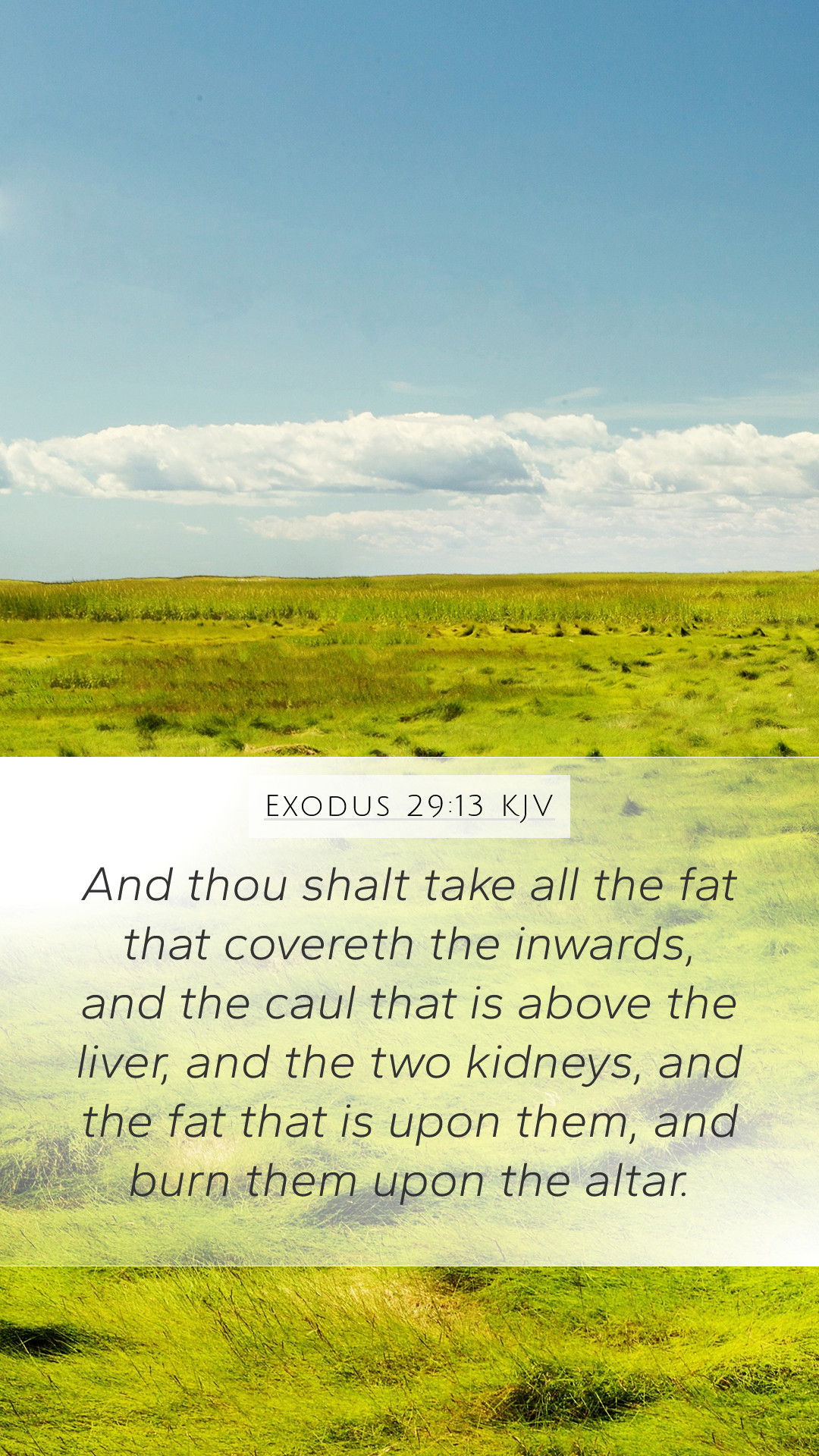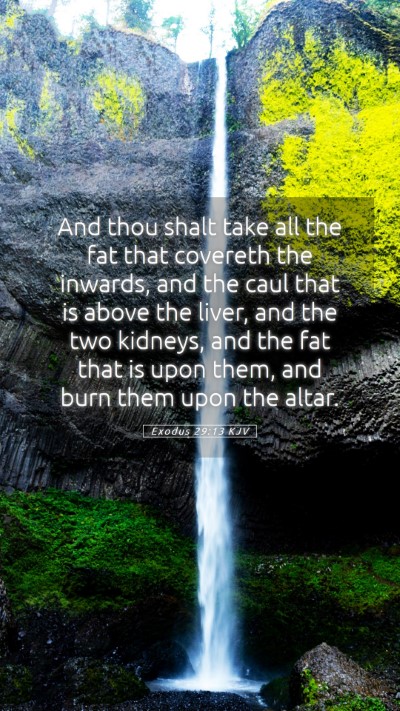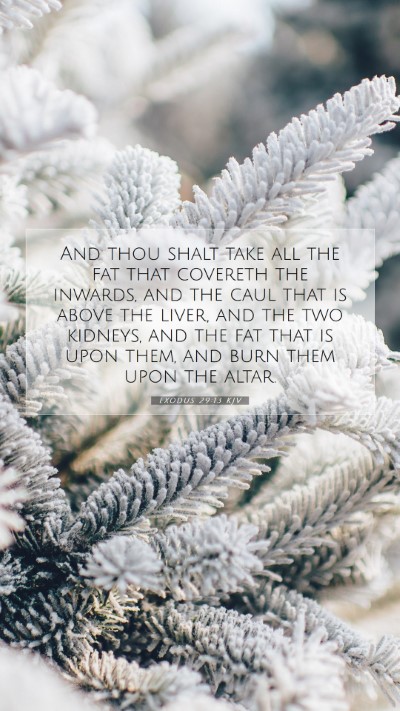Understanding Exodus 29:13
The verse Exodus 29:13 states:
"And thou shalt take all the fat that covereth the inwards, and the fat that is upon the inwards, and the caul above the liver, and the two kidneys, and the fat that is upon them, and burn them upon the altar."
Overview
This verse deals with the instructions given to Moses regarding the consecration of priests in the Old Testament. The specific details provided here highlight the importance of sacrificial offerings and the proper way to present them to God. Through these ancient rituals, God was establishing a framework for worship that emphasized holiness and purification.
Commentary Insights
When we seek to understand this verse, insights from prominent biblical commentators can be immensely helpful. Here are some important interpretations derived from their writings.
Matthew Henry's Commentary
Matthew Henry notes that the fat of the sacrifice has special significance in sacrificial rites, as it represents the best part of the offering. This portion was meant for God alone, exemplifying how the offering of the fat is a way of honoring God. It indicates the importance of offering our best to the Lord, which should permeate our worship and lives.
Albert Barnes' Commentary
Albert Barnes points out that the fat of animals was considered particularly desirable in the culture of ancient Israel. This emphasizes the idea that God desires the choicest parts of sacrifices. Barnes also highlights how this act of burning these offerings symbolizes the sweet aroma of worship that pleases the Lord and signifies the sincerity and completeness of the sacrificial offering.
Adam Clarke's Commentary
Adam Clarke elaborates on the specifics of the fat mentioned in the verse, remarking its distinctive role in sacrifices. He explains that the act of burning the fat on the altar serves as a visible manifestation of the worshipers’ dedication to God. Clarke emphasizes the significance of the physical acts of obedience to spiritual truths, much like repentance leading to grace.
Concept of Sacrificial Worship
This verse encapsulates the broader theme of sacrificial worship in the Old Testament. The act of burning the fat signifies relinquishing something valuable to God, and it sets a precedent for understanding how God seeks total commitment from His followers. It illustrates the principle that true worship comes with a cost—it requires giving up something valuable.
Symbolism in the Offering
- Quality Over Quantity: The focus on the fat symbolizes that God desires quality in our offerings and lives.
- Life and Holiness: Fat was associated with the vitality of the sacrifice. When we offer our "fat," we are presenting our lives, infused with holiness, to God.
- Sweet Aroma: The burning of the fat represents a sweet aroma to God, illustrating the acceptance of our worship when done sincerely.
Bible Verse Meanings and Applications
When seeking to apply Exodus 29:13 to our lives today, we can draw several principles:
- Offering Our Best: In worship, we should strive to give our best to God, be it time, talent, or treasure.
- Holiness in Worship: The specific instructions demonstrate the meticulous nature of being holy before God. It encourages believers to approach God with reverence and a pure heart.
- Sacredness of Rituals: While we may not perform sacrifices today, the principle of dedicating our lives to God remains vital. Our actions should reflect our commitment to Him.
Cross References
This verse can be further understood in light of the following related passages:
- Leviticus 3:16: Discusses the sacrificial offerings and emphasizes the role of fat in worship.
- Genesis 8:21: God's response to Noah's offering and the aroma it produces.
- Hebrews 10:1-4: Provides insight into the significance of sacrifices and how Christ fulfills and transcends these rituals.
Conclusion
Exodus 29:13 serves as a profound reminder of the importance of our offerings to God. Through careful study and interpretation provided by respected commentaries, we gain deeper insight into the value of sacrificial worship and its implication for our lives today. Engaging with this scripture leads to a better understanding of how we can live a life that genuinely honors and glorifies God.
Further Bible Study Resources
For those interested in diving deeper into Bible study, consider the following resources:
- Bible study guides for individuals or groups.
- Online Bible studies that offer structured learning.
- Bible study lessons based on thematic exploration of scriptures.
- Discussion topics suitable for Bible study groups.


